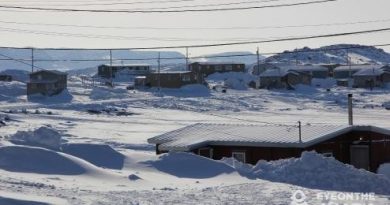Report highlights Finland’s top 5 housing problems

Parliament’s audit committee issued a report on Tuesday outlining five major problems with housing policy in Finland. The committee concluded that policy has been inconsistent while the state has taken a back seat and public costs have been skyrocketing.
The report highlights what the committee sees as the main problems affecting Finnish housing policy and proposes solutions for them. However the list of proposals is no silver bullet that would fix the housing crunch; the recommendations primarily target the next administration with ideas such as a two-year development programme.
Supply and demand mismatch
One of the most intractable issues in Finland’s is the mismatch between supply and demand when it comes to housing stock. Growing urban centres in particular can provide fewer homes than people need but in areas suffering from negative migration, property owners find it difficult to sell their homes.
This situation complicates life for people looking to relocate for work, forcing them to remain in dying regions stuck with a home that they cannot sell, while growth centres suffering a worker shortage can’t recruit employees from far-flung areas.
The audit committee’s proposal to address this issue is to develop a two-year housing programme with long-term goals and strategies for achieving them.
Expensive Helsinki homes, depreciating properties in remote areas
Over the years spending on housing has expanded sharply and an estimated 15 percent of people in Finland don’t earn enough to cover their housing expenses. Some are forced to fill in the gaps with housing subsidies, which suck more than two billion euros from government coffers each year.
There is a shortage of affordable housing, especially in the Helsinki region, which is aggravating the labour shortage in the area, particularly in the service sector where wages may be low.
State-subsidised rental housing accounted for about seven percent of the annual housing stock in the 2010s. The audit committee noted that in the decades between 1970 and 1990, the proportion of state-backed housing was around 21 percent.
MPs on the committee called for the adoption of a cooperative model for so-called social housing. Applicants would include people who are not able to qualify for market-price homes because of their incomes. The committee recommended that the government introduce this model before the next general election due in April 2019.
Mold-ridden homes an ongoing headache
Although the capital region has seen an uptick in the construction of new housing stock, MPs said that it is still not enough to significantly dent the current housing shortage. Moreover construction projects have been stymied by a lack of suitably-qualified labour, causing contractors to cut corners at the expense of quality. Down the road, this could result in moisture and mould problems.
The committee said that problems related to shoddy workmanship continue to occur despite efforts to address the issue in recent years. It suggested that government commission on a report on householders stranded in what it called a mould trap.
Suburban development a cause for concern
According to experts interviewed by the committee the period between the 1990s and the 2010s has seen uneven development in some suburban areas in terms of declining educational levels and increasing unemployment.
These districts are now home to rising numbers of elderly singles, as fewer families with children and young adults settle there. In addition some suburbs are becoming home to growing numbers of foreign-language groups among whom the unemployment rate is higher than that of the Finnish population, according to the report.
The committee called for heading off the problem of segregation with a planned mix of different kinds of housing and by improving immigrant integration. It also recommended a long-term suburban development programme that would extend across several administrations.
Overhaul for support systems
Every year the state spends a significant amount of money on producing new housing stock as well as paying subsidies directly to households. In 2017, the government paid out some 2.7 billion euros in housing support.
The same problems that affect the broader housing market trouble the state’s housing production programme. There are never enough units in the Helsinki region and at the same time the rest of the country is full of dilapidated empty state-supported rentals located in remote areas.
The number of abandoned state-backed rentals across Finland has doubled since the year 2000 and increased for six consecutive years. At the end of last year, the number of state-supported rentals in the country that stood empty for at least 60 days was 8,800.
Meanwhile housing benefits paid directly to households has skyrocketed in recent years and people are increasingly turning to income support to help pay the rent. The committee called for the next administration to completely overhaul the entire subsidy system at the same time that the country’s benefits system is reformed.
Related stories from around the North:
Canada: Access to affordable housing a challenge in Northern Canadian cities, CBC News
Finland: Finland takes thousands off streets by giving homes to homeless, YLE News
Norway: European Commission suggests extending major rail network to Northern Norway, The Independent Barents Observer
Russia: Abandoned Russian airbase to become wealthy residential neighborhood, Photo report by The Independent Barents Observer
Sweden: Small town hopes to reverse depopulation trend affecting rural and Northern Sweden, Radio Sweden



